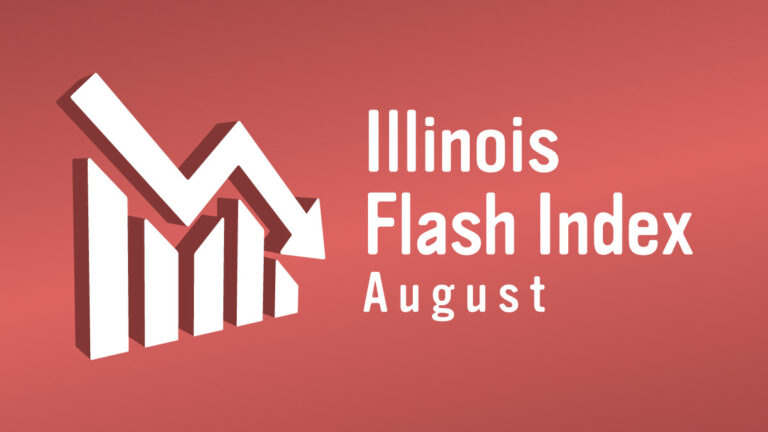URBANA – After rising to its highest level in six years, the Flash Index of the Illinois economy has declined over the past two months, from 106.0 in June, to 105.8 in July and to 105.6 in August. But the economist who compiles the index says he still isn’t concerned about the condition of the state’s economy.
University of Illinois economist Fred Giertz compiles the Flash Index for the university’s Institute of Government and Public Affairs. He repeats what he said a month earlier: the Flash Index has reached a plateau, after recovering from last year’s COVID-19 lockdown, and continues to show economic growth in Illinois, despite its recent declines.
“We reached 106, and now it’s 105.6,” said Giertz. “So it’s down very slightly. But it means we’re still continuing, more or less apace in terms of the recovery. And the reason why it was increasing very rapidly, prior to two or three months ago, is because we were in a stage of recovery from the recession and the downturn that followed the COVID situation last year.”
Giertz says the Flash Index showed a contracting economy for most of 2020 and the first quarter of 2021, due to the COVID-19 pandemic, falling as low as 92.8. But he says the Illinois economy quickly recovered, thanks in part to federal stimulus money and pent-up consumer demand.
The Flash Index is based on Illinois tax receipts, with any number above 100 reflecting economic growth. The Flash Index report for August shows Illinois sales tax receipts up in August from the same month last year, while individual income tax revenues declined a little. Illinois’ corporate tax receipts were down by several percentage points. But Giertz says August is traditionally a month when corporate receipts are low. A change in tax filing dates due to COVID disruptions also had an impact on the corporate and individual receipts.
Giertz says new COVID-19 concerns due to the delta variant may have contributed to the current plateau. And he says he’s also concerned about Illinois’ unemployment rate, which, at 7.1%, is well above the national rate of 5.4%. But Giertz says the outlook remains positive for the U-S economy, including Illinois, thanks to federal stimulus funding and pent-up consumer demand.

